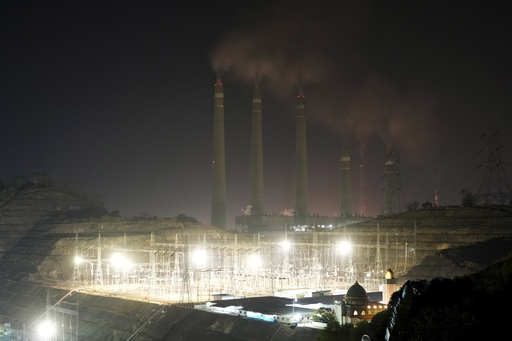
JAKARTA, Indonesia — President Prabowo Subianto of Indonesia has revealed an ambitious plan aimed at retiring all coal and fossil fuel power plants and significantly enhancing the country’s renewable energy capabilities over the next 15 years.
“Indonesia is endowed with abundant geothermal resources, and we intend to eliminate coal-fired and all fossil-fuel power facilities within the coming 15 years. Our strategy encompasses the development of more than 75 gigawatts of renewable energy capacity during this period,” Subianto announced during the Group of 20 summit held in Brazil.
Subianto expressed confidence that Indonesia could achieve net zero emissions by 2050, advancing the country’s earlier commitment from 2060 to 2050. This revelation has garnered attention from various experts and environmental advocates, though they remain cautiously optimistic regarding the feasibility of these plans.
As one of the top global producers and consumers of coal, Indonesia’s energy supply is heavily reliant on fossil fuels, with over 250 coal-fired power plants currently operational and new ones being erected, particularly in industrial parks that process critical materials such as nickel, cobalt, and aluminum.
Data from the International Energy Agency indicates that Indonesia’s energy sector emitted more than 650 million tons of carbon dioxide in 2022, ranking seventh highest globally. The country’s anticipated population and economic growth is projected to triple energy consumption by the year 2050.
Experts assert that prompt and effective implementation of these proposed changes is crucial for realizing the president’s ambitions. Bhima Yudhistira, executive director of the Center of Economic and Law Studies based in Indonesia, emphasized the need for clarity in shutting down coal power plants and halting new permits, allowing investors and partners to gauge progress and direction in the energy transition.
Previously, under President Joko Widodo, Indonesia committed to significantly reducing coal usage through collaborations with international stakeholders, including a notable $20 billion Just Energy Transition Partnership (JETP) deal. While this initiative is still in motion, tangible changes on the ground remain elusive, and it fails to meet the trillions of dollars estimated necessary for transitioning to renewable energy and decommissioning existing coal plants.
At the summit in Brazil, Prabowo highlighted Indonesia’s extensive renewable energy potential, spanning solar, hydropower, geothermal, wind, and other sources. Current utilization of these resources is merely 14.5%, as reported by the International Renewable Energy Agency, with installed renewable capacity at approximately 13 gigawatts, constituting less than 15% of the nation’s total generation capacity.
“We are dedicated to advancing renewable and green energy. Our wealth of resources puts us in a strong position,” he commented. “We have various renewable energy options, and that’s why we are confident about achieving net zero emissions before 2050.”
Currently, Indonesia’s Ministry of Energy and Mineral Resources and the state electric utility, Perusahaan Listrik Negara, have not provided any immediate comments regarding these announcements.
